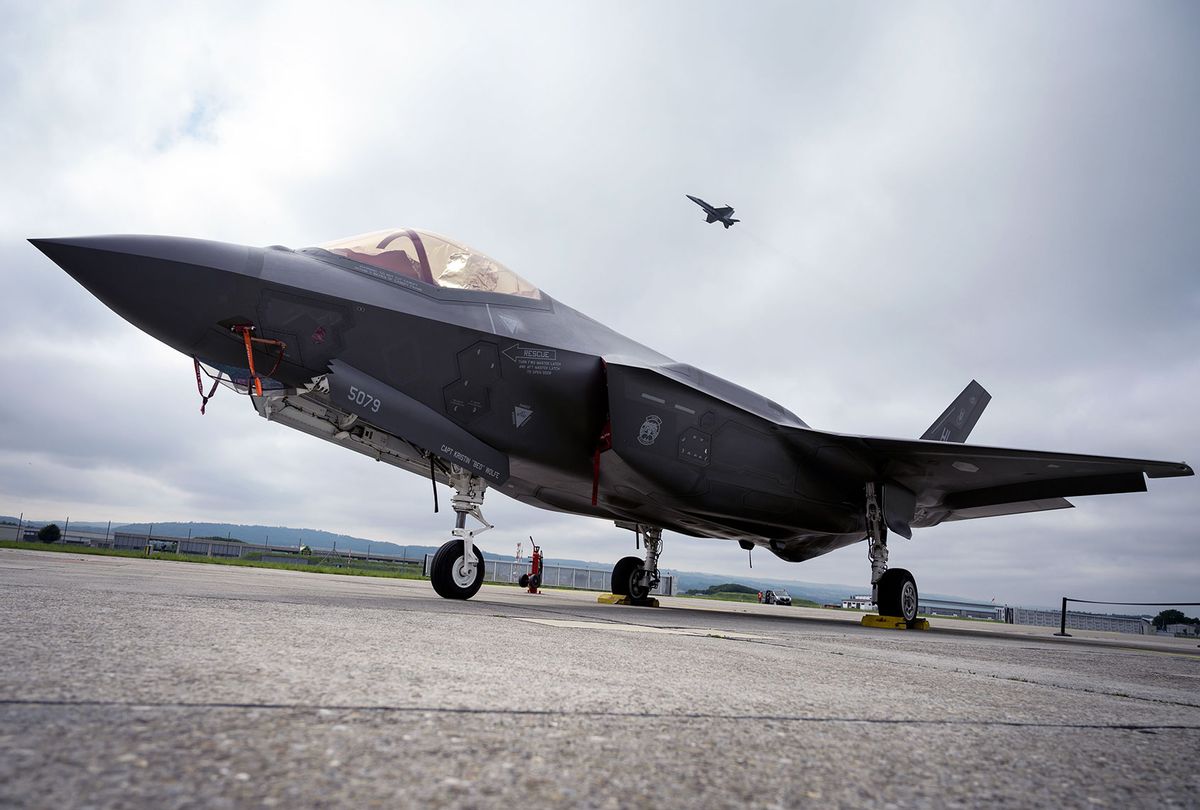In bipartisan fashion, the Senate passed a massive military spending bill on Wednesday. The U.S. House of Representatives passed a sprawling military policy bill last week that contains nearly twice as much funding on an annual basis as Democrats' flagship social spending and climate bill that has stalled out.
That reality led Stephen Miles, executive director of Win Without War, to slam the $778 billion National Defense Authorization Act as "a reckless misuse of resources, a windfall for war profiteers, and proof positive that most in Congress have little concern for the actual security of people in the United States or around the world."
"Little could be more revealing of our nation's broken budget priorities," Miles added, "than the fact that this rubberstamp of three-quarters of a trillion dollars for warmaking was prioritized and will soon pass with bipartisan support, while the Build Back Better Act — which would invest in meeting real human needs — has been watered down and pushed to the back burner."
The House passed the NDAA Tuesday night by a vote of 363-70, with the measure ultimately receiving more votes from Republicans than Democrats even though the latter control the chamber and led negotiations over the bill. Of the 70 no votes, 51 were Democrats.
In a tweet explaining his vote against the NDAA, Rep. Jamaal Bowman, D-N.Y., wrote that "it is astounding how quickly Congress moves weapons but we can't ensure housing, care, and justice for our veterans, nor invest in robust jobs programs for districts like mine."
"There was no CBO score needed," Bowman added, a jab at conservative Democrats who have complained incessantly about the size of the Build Back Better Act without raising similar concerns about the bloated military budget.
"No concern about the deficit," Bowman continued. "No mention of inflation."
The House-passed NDAA includes $25 billion more in spending than President Joe Biden requested in his budget blueprint earlier this year. As Rep. Andy Levin, D-Mich., pointed out, it would cost the federal government roughly $22.5 billion to fund 12 weeks of paid family leave for a year.
According to Defense News, the legislation in its current form contains "12 F/A-18 Super Hornets that were not requested; five more Boeing F-15EX jets than the request for 17 total; and 13 ships total — including two attack submarines and two destroyers ― for five more than the request."
Additionally, as Miles noted, the bill "fails to end U.S. complicity in the war in Yemen, excludes critical measures to rein in out-of-control executive war powers, and doubles down on a dangerous Cold War mindset towards China" with $7.1 billion for the so-called Pacific Deterrence Initiative, which progressives have deemed an "anti-China slush fund."
Robert Weissman, president of the consumer advocacy group Public Citizen, said in a statement that "as the national debate centers around how much is 'too much' to be spending on the true needs of the American people, it is unconscionable to approve three-quarters of a trillion dollars for war-making."
"What possible justification is there for throwing $768 billion at the Pentagon at the very same moment that we're being told there isn't enough money to provide dental care to seniors, establish a paid family leave, or provide free community college?" Weissman asked. "Why is there more money for the military-industrial complex — providing no additional protection for our national security and arguably diminishing it — at the same time the U.S. is refusing to spend the $25 billion needed to make enough additional vaccines to vaccinate the world?"
The NDAA now heads to the Senate, where it is expected to pass over the objections of progressives such as Sens. Bernie Sanders, I-Vt., and Ed Markey, D-Mass., who have introduced amendments aimed at bringing the bill's spending levels back into line with Biden's request and redirecting 1% of Pentagon spending to global climate programs.
"Cutting the Pentagon's budget could help fight threats like COVID, climate change, and more," Rep. Mark Pocan, D-Wis., said following his no vote on the NDAA. "Our work to cut the Pentagon's budget and reallocate funds to help communities across the country is just beginning. The fight doesn't end tonight."



Shares